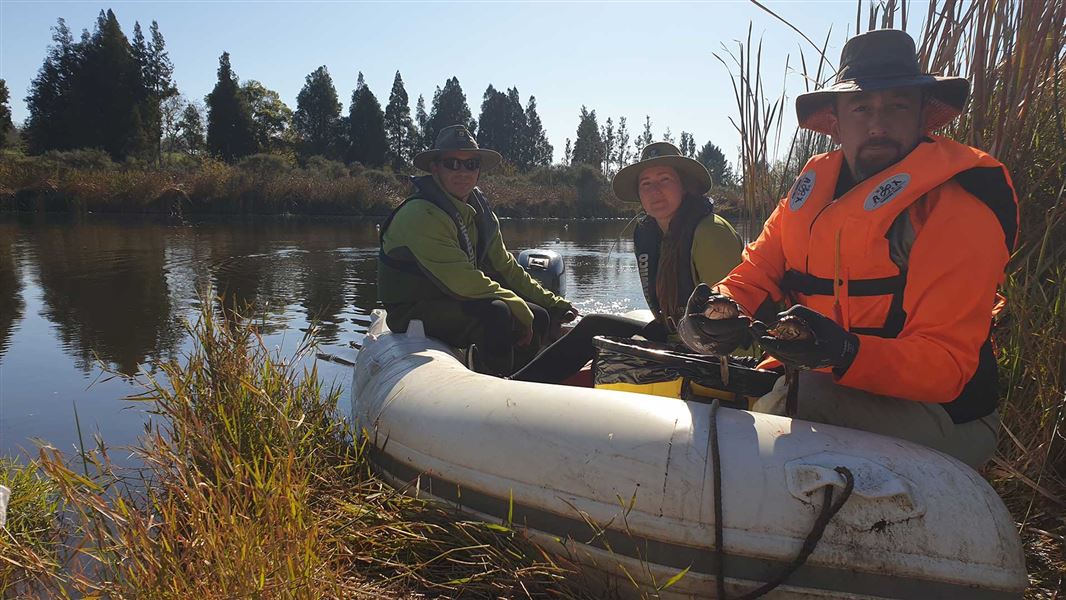Archived content: This media release was accurate on the date of publication.
Date: 22 May 2020
After seven weeks of working from home doing online training and planning during the nationwide COVID-19 lockdown, Hamilton-based Rangers Mark Lammas and Jess Roeger have been joined by Biodiversity Senior Ranger Nigel Binks at Lake Rotopiko/Lake Serpentine, just south of the Waikato township of Ohaupo.
“It’s great to be back out in the field,” says Mark Lammas.
Adds Nigel Binks: “Everyone is pretty eager for a change of scenery at the moment – and some pest fish work definitely ticks that box.”
The trio have been greeted by clear blue autumn skies and a touch of frost during several days of work netting pest fish – part of decades of effort to regenerate and restore the environments around the complex of peat lakes in the district. DOC is one of several agencies involved in restoring the lake environments, along with the National Wetland Trust, NZ Landcare Trust and Waikato Regional Council.
The trio’s work - using a small inflatable boat equipped with an outboard motor - has seen them pull more than 300 catfish and a number of rudd and goldfish from Lake Rotopiko’s southern lake waters using set nets during the first two days of their efforts. Pest fish collected from the lakes are euthanised and turned into pet food or fertiliser.
“We’ve got 33 nets spaced 20 metres apart all around the lake,” says Mark Lammas.
The work was originally programmed for March, but the nationwide COVID-19 lockdown meant it had to be postponed. With duck shooting season looming the netting’s urgency was heightened and it has been a priority job for the district’s operational staff this week.
Although there’s no pest fish quota for the team to achieve, details of the haul will be closely recorded so data such as size and the number of specimens caught can be analysed.
Nigel Binks says the biomass of the catfish – the total mass of their population - coupled with the sheer space they take up in the lakes is a particular concern because of their ability to churn up sediment, consequently harming aquatic plants (macrophytes) and impacting on native species' habitat.
And although being paid to fish might seem like a dream job for many recreational fishers, the desired results for the DOC team are quite the opposite to what most people casting a need or throwing out a line would be after.
“The greatest satisfaction is actually pulling up a net, and there’s no fish in there at all,” Mark Lammas says.
Contact
For media enquiries contact:
Email: media@doc.govt.nz
